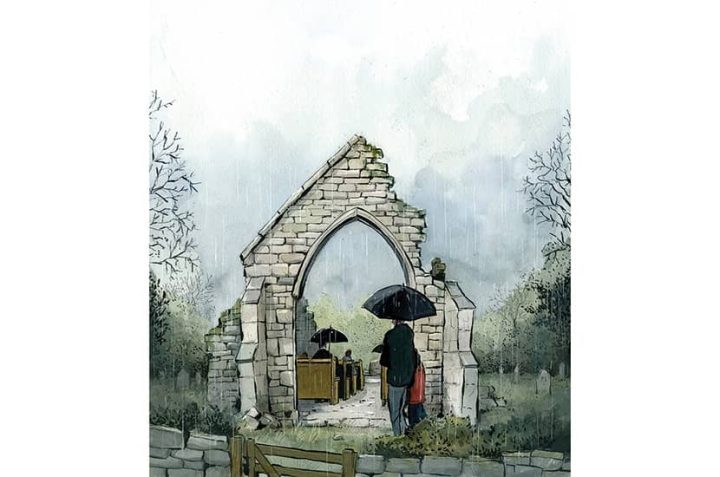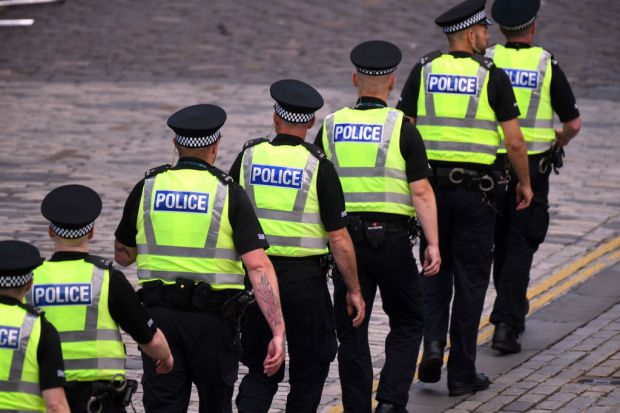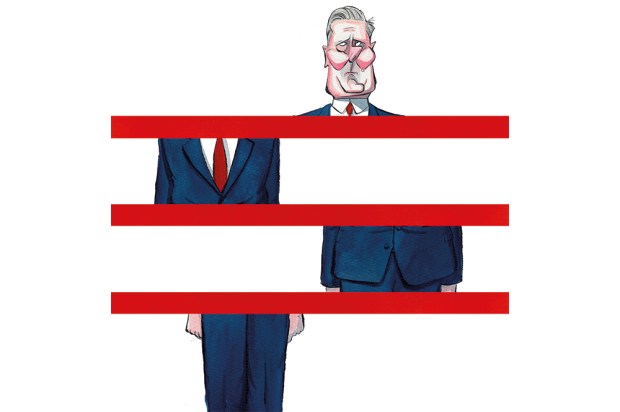Recent days have shown an upsurge of interest in a small Presbyterian church (the Free Church of Scotland, colloquially referred to as ‘the Wee Frees’) because one of its members, Kate Forbes, is running to replace Nicola Sturgeon as first minister. As a former Moderator of that Church, an honorary role as an ambassador for the movement, it is fascinating, amusing and not a little frustrating for me to watch the ‘expert’ commentators get it so wrong, so often, when they discuss it.
In the past few days, some have publicly wondered if Forbes believes in dinosaurs; if she will be able to do her job on Sundays; and even if she will ban homosexuality. I note how easy it is to pontificate and mock in ignorance a minority group that seems to be ‘on the wrong side of history’ (and that has no ability to do you any harm). Former Lib Dem leader Tim Farron was asked a very specific question: does he think gay sex is sinful? He could not answer. Forbes is facing a similar inquisition. It will be interesting to see how many – if any – journalists are prepared to ask questions of Humza Yousaf over his Islamic faith. In today’s Scotland, equality and diversity only apply if you join in the groupthink.
There appears to be a new Test Act being imposed upon politicians in the UK
The Free Church is neither a cult nor a sect. It is a historical Scottish Presbyterian church which has its roots in the Scottish Reformation and the Disruption of 1843. It is neither the Church of Scotland nor the Free Presbyterian Church, though they share the same roots. Its reputation is of being a Highland church (usually said with a somewhat patronising ‘oh those backward Highlanders’ – Forbes herself is a Gaelic speaker). But in an era of religious decline, it has shown surprising growth and new life (Forbes is a convert) partly because of the collapse of the Church of Scotland, it is planting new churches in the central belt and borders. It has a significant number of young members and continues to run its own college, Edinburgh Theological Seminary, which trains and educates ministers, teachers and other workers. There are currently around 100 churches, with more than 13,000 attendees every Sunday.
Due to the influence of American media – an influence which has only increased as wokery and culture wars have infiltrated the academic, corporate, media and political establishments here – there are too many British commentators who seem to see the Free Church as some kind of southern US fundamentalist sect seeking to impose a theocracy upon the whole country. But nothing could be further from the truth.
The Free Church sees its responsibility as being to communicate the teachings of Jesus Christ – not to run the government. The Church does not endorse political candidates, nor does it believe that it should take party political positions. As a result, there are people of all different political persuasions in our congregations. In my former church, St Peter’s in Dundee, we had Labour supporters, Greens, Tories, Lib Dems, those who couldn’t care less and SNP members – including the party’s former leader, Gordon Wilson.
While we do not take party political positions, we do proclaim God’s word on a number of moral issues, including injustice, poverty, racism, euthanasia, abortion, family, sexuality, greed, violence and marriage. Like other Christians, we regard all human life as sacred and so oppose the taking of life within the womb, or in euthanising the elderly and sick. We also believe that all human beings are equally created as male or female in the image of God. While we recognise the struggle that some transgender people suffer with, we believe it is irrational and unscientific to claim that people can change biological sex. Others may not agree with those views, but we are disturbed that holding them is deemed, by some, to be a reason for exclusion from public life. There appears to be a new Test Act being imposed upon politicians in the UK.
Many people are confused by the term ‘theologically conservative’. This does not imply political conservatism, but simply means the Wee Free Church is prepared to stick with and teach the message of the Bible. Once commonplace, that is truly radical today. In this regard it should be noted that the phrase ‘go woke, go broke’ applies to churches as much as to companies and commercial media. The irony is that in today’s Scotland, it is churches which have bought into the current zeitgeist to ‘appeal to today’s society’.
The Free Church of Scotland’s role is to persuade by life and teaching, not to coerce by government, force of law and indoctrination. And yet it appears that we are considered such a threat that while the UK can have a Hindu prime minister and London a Muslim mayor; Scotland should not be permitted to have a member of our church as leader.
Forbes has said that her beliefs would not change how she votes, so she draws a distinction between what she’d seek to do as first minister and her personal conscience. But obviously that isn’t enough for the MSPs who are now withdrawing support for her because of her beliefs. Would they do the same if she were Muslim or Catholic? And if so, are we saying that members of such churches (or mosques) are only tolerated in public life if they renounce certain beliefs?
In the words of Mel Gibson, we can only cry ‘Freedom’. Or perhaps Jesus says it better: ‘If the truth sets you free, you will be free indeed.’
Got something to add? Join the discussion and comment below.
Get 10 issues for just $10
Subscribe to The Spectator Australia today for the next 10 magazine issues, plus full online access, for just $10.




















Comments
Don't miss out
Join the conversation with other Spectator Australia readers. Subscribe to leave a comment.
SUBSCRIBEAlready a subscriber? Log in